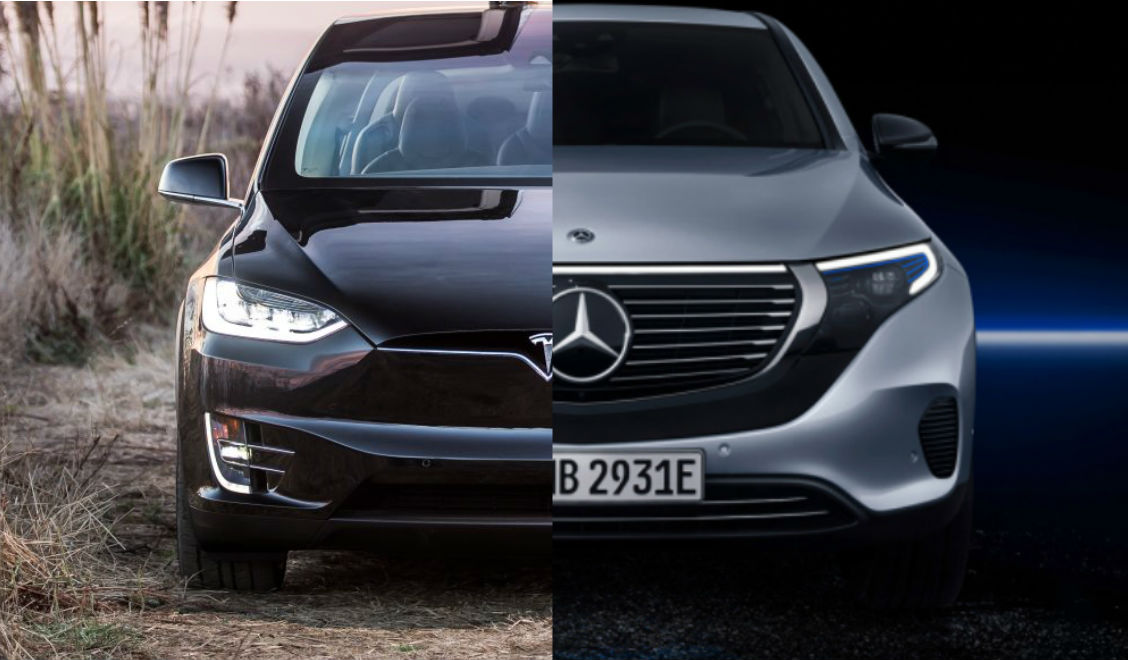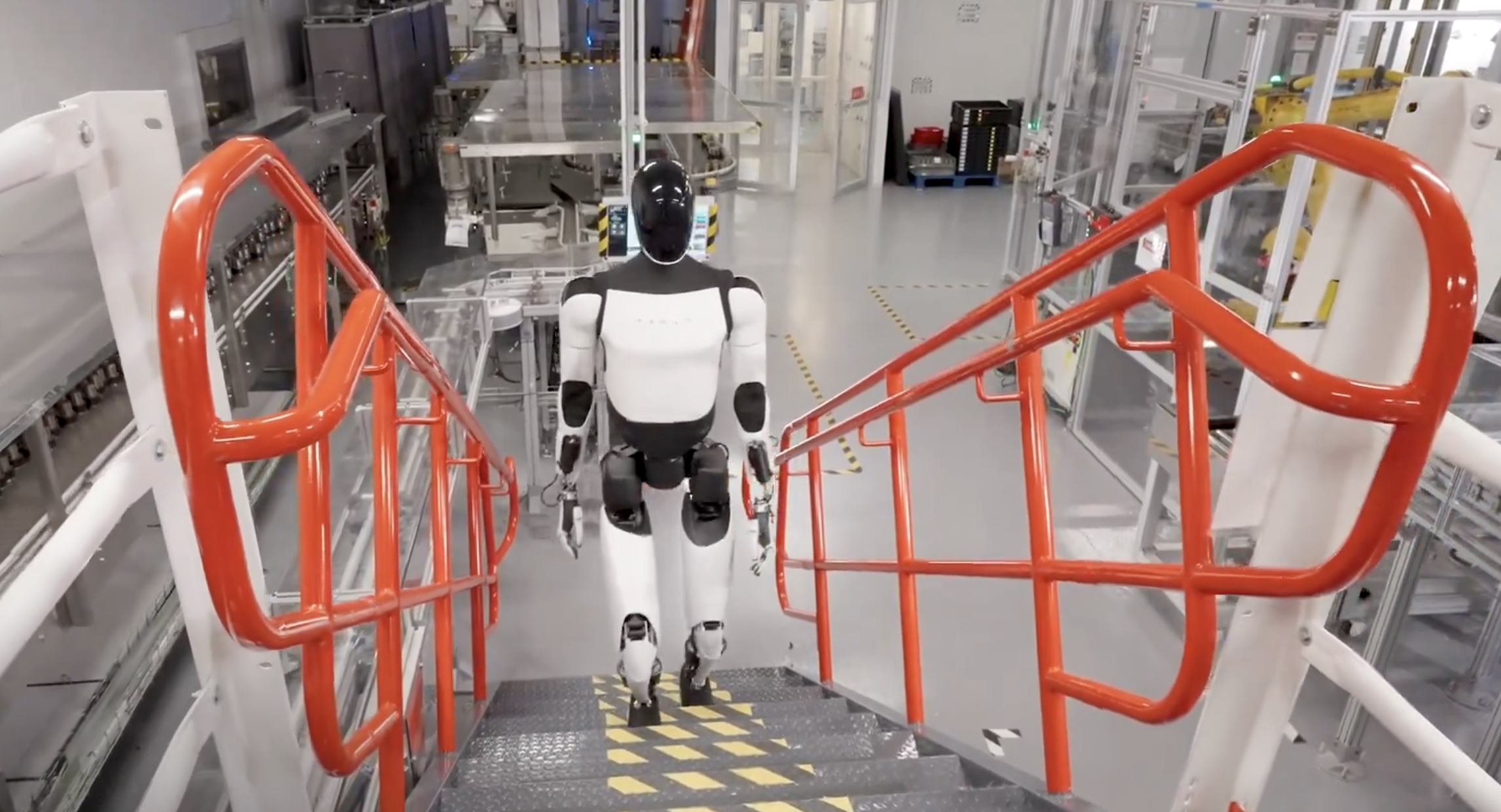

Investor's Corner
Wall St’s reaction to Daimler’s reduced earnings guidance highlights critical eye on TSLA
German automaker Daimler AG had a pretty tough Monday. Following an announcement on Sunday that it is cutting its 2019 earnings guidance over the effects of an ongoing diesel emissions scandal at Mercedes-Benz, the company’s shares declined 3.6% in Frankfurt. The carmaker has noted that it is currently facing a “high three-digit million” euro increase in charges related to the diesel scandal, which would likely result in its 2019 earnings being about the same as 2018’s.
Daimler’s diesel troubles were highlighted on Friday, when Germany’s vehicle authority, the Federal Motor Transport Authority (KBA), issued a forced recall against the automaker for allegedly using an illegal shut-off device for the diesel-powered Mercedes-Benz GLK 220. The KBA is looking to extend its investigation into the carmaker further, as the cheating devices were reportedly used in Daimler’s OM642 and OM651 engines, which are equipped in popular vehicles such as the Mercedes-Benz C-Class and E-Class. The initial recall currently covers 60,000 units of the GLK, though the number could be as high as 700,000 vehicles if it covers other vehicles using the OM642 and OM651 engines, according to German publication Bild am Sonntag.
Apart from the KBA investigation in Germany, Daimler has noted in its first-quarter earnings release that it is facing an emissions probe by the US Justice Department. The company is also facing a consumer-class action lawsuit in the United States along with Bosch, one of its suppliers, for allegedly conspiring to deceive US regulators. These could prove to be a stumbling block for the company, particularly as it attempts to breach the premium electric vehicle market with the Mercedes-Benz EQC, which is expected to compete against EV veterans such as the Tesla Model X.

Amidst these recent headwinds, Wall St. analyst Dan Ives from Wedbush Securities noted in a statement to CNBC that Daimler currently needs to perform a “balancing act” as it attempts to weather these challenging times. “This really handcuffs them a bit. It’s going to be a balancing act, they really need to hold investor’s hands on this, and the question is ‘Can they navigate these headwinds?’ It’s an arms race in the electric vehicle world right now,” Ives said.
The Wedbush analyst’s reaction to the developments at Daimler is quite compelling. The automaker’s challenges today are serious, yet Ives’ comments were quite restrained. Considering that the automaker is facing another diesel emissions scandal and a “high three-digit million” euro increase in charges that will result in reduced 2019 profits, the circumstances might very well handcuff Daimler more than “a bit.” Ives’ tempered response to the German automaker’s update ultimately stands in stark contrast with his reactions to Tesla. Following Tesla’s Q1 earnings call, which revealed yet another loss for the company, Ives practically bordered on the subjective, seemingly mocking Musk’s continued optimism in future quarters.
“We view this quarter as one of (the) top debacles we have ever seen, while Musk & Co., in an episode out of the Twilight Zone, act as if demand and profitability will magically return to the Tesla story. As such, we no longer can look investors in the eye and recommend buying this stock at current levels until Tesla starts to take its medicine and focus on (the) reality around demand issues which is the core focus of investors” Ives wrote in a note to Wedbush’s clients.

Following a leaked email from Elon Musk urging employees to cut costs, Ives also issued a note describing the electric car maker’s circumstances as a “code red situation,” adding that Tesla faces a “Kilimanjaro-like uphill climb” as it attempts to hit its profitability targets this 2019. Quite interestingly, Ives’ comments likely helped push TSLA stock down over 4% then, which was more than Daimler’s drop on Monday. It should be noted that none of these dramatic tones were present in Ives’ comments about the German automaker’s recent updates. This is quite ironic considering his colorful reactions to Tesla’s developments were rooted only in speculations, while Daimler’s current headwinds are the result of an actual investigation by Germany’s Federal Motor Transport Authority (KBA).
During Tesla’s annual shareholder meeting, several TSLA shareholders brought up the issue of the negative narrative and misinformation surrounding the company. Elon Musk noted that these misconceptions are distressing, though he admitted that he is at a loss as to how to change the negative narrative surrounding Tesla. For the electric car maker, perhaps the best way to address all the skepticism is to simply hit its self-imposed, ambitious targets, such as delivering over 90,000 vehicles to customers this quarter, or reclaiming profitability in the second half of 2019.
Disclosure: I have no ownership in shares of Tesla or Daimler, and have no plans to initiate any positions within 72 hours.
Investor's Corner
Tesla could save $2.5B by replacing 10% of staff with Optimus: Morgan Stanley
Jonas assigned each robot a net present value (NPV) of $200,000.

Tesla’s (NASDAQ:TSLA) near-term outlook may be clouded by political controversies and regulatory headwinds, but Morgan Stanley analyst Adam Jonas sees a glimmer of opportunity for the electric vehicle maker.
In a new note, the Morgan Stanley analyst estimated that Tesla could save $2.5 billion by replacing just 10% of its workforce with its Optimus robots, assigning each robot a net present value (NPV) of $200,000.
Morgan Stanley highlights Optimus’ savings potential
Jonas highlighted the potential savings on Tesla’s workforce of 125,665 employees in his note, suggesting that the utilization of Optimus robots could significantly reduce labor costs. The analyst’s note arrived shortly after Tesla reported Q2 2025 deliveries of 384,122 vehicles, which came close to Morgan Stanley’s estimate and slightly under the consensus of 385,086.
“Tesla has 125,665 employees worldwide (year-end 2024). On our calculations, a 10% substitution to humanoid at approximately ($200k NPV/humanoid) could be worth approximately $2.5bn,” Jonas wrote, as noted by Street Insider.
Jonas also issued some caution on Tesla Energy, whose battery storage deployments were flat year over year at 9.6 GWh. Morgan Stanley had expected Tesla Energy to post battery storage deployments of 14 GWh in the second quarter.
Musk’s political ambitions
The backdrop to Jonas’ note included Elon Musk’s involvement in U.S. politics. The Tesla CEO recently floated the idea of launching a new political party, following a poll on X that showed support for the idea. Though a widely circulated FEC filing was labeled false by Musk, the CEO does seem intent on establishing a third political party in the United States.
Jonas cautioned that Musk’s political efforts could divert attention and resources from Tesla’s core operations, adding near-term pressure on TSLA stock. “We believe investors should be prepared for further devotion of resources (financial, time/attention) in the direction of Mr. Musk’s political priorities which may add further near-term pressure to TSLA shares,” Jonas stated.
Investor's Corner
Two Tesla bulls share differing insights on Elon Musk, the Board, and politics
Two noted Tesla bulls have shared differing views on the recent activities of CEO Elon Musk and the company’s leadership.

Two noted Tesla (NASDAQ:TSLA) bulls have shared differing views on the recent activities of CEO Elon Musk and the company’s leadership.
While Wedbush analyst Dan Ives called on Tesla’s board to take concrete steps to ensure Musk remains focused on the EV maker, longtime Tesla supporter Cathie Wood of Ark Invest reaffirmed her confidence in the CEO and the company’s leadership.
Ives warns of distraction risk amid crucial growth phase
In a recent note, Ives stated that Tesla is at a critical point in its history, as the company is transitioning from an EV maker towards an entity that is more focused on autonomous driving and robotics. He then noted that the Board of Directors should “act now” and establish formal boundaries around Musk’s political activities, which could be a headwind on TSLA stock.
Ives laid out a three-point plan that he believes could ensure that the electric vehicle maker is led with proper leadership until the end of the decade. First off, the analyst noted that a new “incentive-driven pay package for Musk as CEO that increases his ownership of Tesla up to ~25% voting power” is necessary. He also stated that the Board should establish clear guidelines for how much time Musk must devote to Tesla operations in order to receive his compensation, and a dedicated oversight committee must be formed to monitor the CEO’s political activities.
Ives, however, highlighted that Tesla should move forward with Musk at its helm. “We urge the Board to act now and move the Tesla story forward with Musk as CEO,” he wrote, reiterating its Outperform rating on Tesla stock and $500 per share price target.
Tesla CEO Elon Musk has responded to Ives’ suggestions with a brief comment on X. “Shut up, Dan,” Musk wrote.
Cathie Wood reiterates trust in Musk and Tesla board
Meanwhile, Ark Investment Management founder Cathie Wood expressed little concern over Musk’s latest controversies. In an interview with Bloomberg Television, Wood said, “We do trust the board and the board’s instincts here and we stay out of politics.” She also noted that Ark has navigated Musk-related headlines since it first invested in Tesla.
Wood also pointed to Musk’s recent move to oversee Tesla’s sales operations in the U.S. and Europe as evidence of his renewed focus in the electric vehicle maker. “When he puts his mind on something, he usually gets the job done,” she said. “So I think he’s much less distracted now than he was, let’s say, in the White House 24/7,” she said.
TSLA stock is down roughly 25% year-to-date but has gained about 19% over the past 12 months, as noted in a StocksTwits report.
Investor's Corner
Cantor Fitzgerald maintains Tesla (TSLA) ‘Overweight’ rating amid Q2 2025 deliveries
Cantor Fitzgerald is holding firm on its bullish stance for the electric vehicle maker.

Cantor Fitzgerald is holding firm on its bullish stance for Tesla (NASDAQ: TSLA), reiterating its “Overweight” rating and $355 price target amidst the company’s release of its Q2 2025 vehicle delivery and production report.
Tesla delivered 384,122 vehicles in Q2 2025, falling below last year’s Q2 figure of 443,956 units. Despite softer demand in some countries in Europe and ongoing controversies surrounding CEO Elon Musk, the firm maintained its view that Tesla is a long-term growth story in the EV sector.
Tesla’s Q2 results
Among the 384,122 vehicles that Tesla delivered in the second quarter, 373,728 were Model 3 and Model Y. The remaining 10,394 units were attributed to the Model S, Model X, and Cybertruck. Production was largely flat year-over-year at 410,244 units.
In the energy division, Tesla deployed 9.6 GWh of energy storage in Q2, which was above last year’s 9.4 GWh. Overall, Tesla continues to hold a strong position with $95.7 billion in trailing twelve-month revenue and a 17.7% gross margin, as noted in a report from Investing.com.
Tesla’s stock is still volatile
Tesla’s market cap fell to $941 billion on Monday amid volatility that was likely caused in no small part by CEO Elon Musk’s political posts on X over the weekend. Musk has announced that he is forming the America Party to serve as a third option for voters in the United States, a decision that has earned the ire of U.S. President Donald Trump.
Despite Musk’s controversial nature, some analysts remain bullish on TSLA stock. Apart from Cantor Fitzgerald, Canaccord Genuity also reiterated its “Buy” rating on Tesla shares, with the firm highlighting the company’s positive Q2 vehicle deliveries, which exceeded its expectations by 24,000 units. Cannacord also noted that Tesla remains strong in several markets despite its year-over-year decline in deliveries.
-

 News3 days ago
News3 days agoTesla debuts hands-free Grok AI with update 2025.26: What you need to know
-

 Elon Musk1 week ago
Elon Musk1 week agoElon Musk confirms Grok 4 launch on July 9 with livestream event
-

 Elon Musk6 days ago
Elon Musk6 days agoxAI launches Grok 4 with new $300/month SuperGrok Heavy subscription
-

 News2 weeks ago
News2 weeks agoTesla Model 3 ranks as the safest new car in Europe for 2025, per Euro NCAP tests
-

 Elon Musk2 weeks ago
Elon Musk2 weeks agoxAI’s Memphis data center receives air permit despite community criticism
-

 News5 days ago
News5 days agoTesla begins Robotaxi certification push in Arizona: report
-

 Elon Musk2 weeks ago
Elon Musk2 weeks agoTesla reveals it is using AI to make factories more sustainable: here’s how
-

 Elon Musk2 weeks ago
Elon Musk2 weeks agoTesla scrambles after Musk sidekick exit, CEO takes over sales













